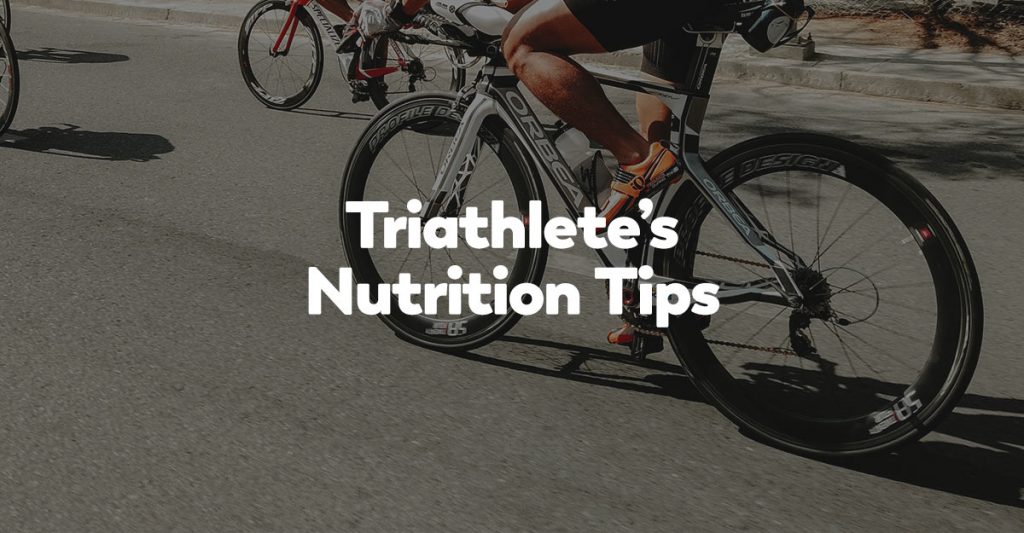
The triathlon is an extreme test of physical endurance, consisting of 3 sections: swimming, cycling, and running. Training for a triathlon is an intense endeavor and can test the limits of your physical and mental capabilities. Fueling your body with the right diet is crucial to keep your training on track.
If you’re considering a triathlon, we’ve got you covered with a brief overview of triathlete’s nutrition tips, as well as some supplements to help you meet your goals.
5 Triathlete’s Nutrition Tips
Understanding Your Macros
No matter the distance of your triathlon, the most likely cause of training fatigue is dehydration or carbohydrate depletion. While you should always be eating fresh, minimally processed foods, you need to find the right carb, fat, and protein balance to fuel for your training schedule. To the right formula for your body and training stage, do some research or check with your trainer.
Mix it Up with a Diverse Diet
Fruits and vegetables should be the bulk of your diet, no matter the intensity of your workout regimen. Try to eat a balanced, whole-foods diet with a rainbow of colors throughout the day and don’t overdo it on the protein. Just because you’re training hard, doesn’t mean you should become an overkill carnivore.
Welcome the Healthy Fats!
Healthy fats are your new best friend, helping you get over the hump on a hard training day. Healthy fats like nuts and seeds are packed with nutrition and easy to grab. Avocados are creamy and delicious, full of healthy fats and the perfect addition to almost any meal.
Prioritize Hydration, All Day Long
You need to focus on hydration during all of your waking hours, not just those in which you are training. Dehydration of as little as 2 percent of your body weight can cause fatigue and decreased performance. For workouts under an hour, water alone is enough to keep you hydrated. For longer, more intense workouts, reach for an electrolyte drink.
Consider Alkalization
Your body is always working, trying to maintain an optimal pH balance, and intense training can mess with that. If your pH levels are too acidic, your body can leach calcium from your bone to correct the imbalance. While training for a triathlon, consider adding in more alkaline foods such as dark greens and fruit, to maintain a healthy pH balance.
Food & Supplements Targeted to Support Triathletes’ Nutrition
Quality, targeted supplements are key to supporting the intensity of a training for a triathlon. Here are a few snacks and supplements we recommend to support triathletes’ nutrition.
MCT Ketone Energy from Seroyal Genestra Brands
Data on MCT suggests it supports energy production and performance during exercise by regulating mitochondrial function and carbohydrate use. MCT Ketone Energy from Seroyal Genestra Brands provides 14 grams of MCT to support energy, metabolism, and satiety.
Unsalted Raw Almonds from NOW Foods
Almonds are rich in protein, fiber, and healthy fats – making them the perfect snack to support your training. Unsalted Raw Almonds from NOW Foods are non-GMO, tasty, and rich in vitamin E, and Riboflavin.
Omega LDL from Nordic Naturals
Omega-3 essential fat deficiency is common among triathletes as this crucial nutrient is only found in a handful of foods like fish, flax, and walnuts. If you’re not regularly consuming these natural omega-3 sources, you should consider a fish-oil supplement like Omega LDL from Nordic Naturals. Have you trained for a triathlon? What nutrition tips did you find helpful? Share your triathletes’ nutrition insight and experiences with us in the comments section below.
